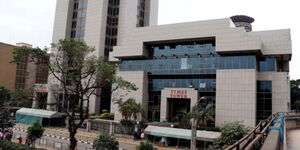Before preparing their favorite meals, many Kenyans are used to picking out tomatoes from vendors based on their aesthetic appeal.
Tomatoes with blemishes, irregular size or shape are quickly rejected. The same applies to several other fruits and vegetables sold across the country.
A project initiated in Kenya by the United Nations' World Food Program (WFP), is however, rethinking this culture as it looks to ensure that food is no longer wasted.
Currently in its third year, the innovative program has seen three schools in Nairobi benefit from large consignments of rejected fruits and vegetables that would otherwise have ended up in dumpsites.
For the project, two companies that export produce from Kenya to the European market were tasked with supplying produce that would otherwise have been rejected to a Nairobi-based catering company contracted by WFP.
The company makes various meals which it then supplies to the three schools. The WFP revealed that, in the future, it planned on facilitating on-site preparation so that schools make the meals themselves.
Importantly, the vegetables and fruits offer all the nutritional advantages despite various blemishes that diminish their aesthetic appeal.
The project has allowed schools to introduce and expand their school lunch programs, considered essential to keeping children in class.
Evelyn Mudenyo, a director at Little Bells, one of the primary schools benefiting from the project, noted that the new menu was more nutritious than what they had been offering.
“Without school lunches, these children would end up on the streets. The green vegetables are a welcome addition - the food is more nutritious.
“Whether in poverty or in plenty, children should go to school,” she maintained.
The WFP estimates that every day in Kenya, at least 83,000kg of produce is rejected for being off-putting to consumers. Produce for the export market is particularly affected due to the high standards.
It is hoped that the program will be expanded not just in Kenya but further beyond, in a bid to ensure that food no longer goes to waste.
“One thing we know for sure is that the students like the vegetables. Now, we have to figure out how to harness this wonderful source of cheap, fresh food that is being wasted, in order to supply school meals in an affordable and sustainable way,” Nairobi-based WFP nutritionist Dina Aburmishan stated of the program.












